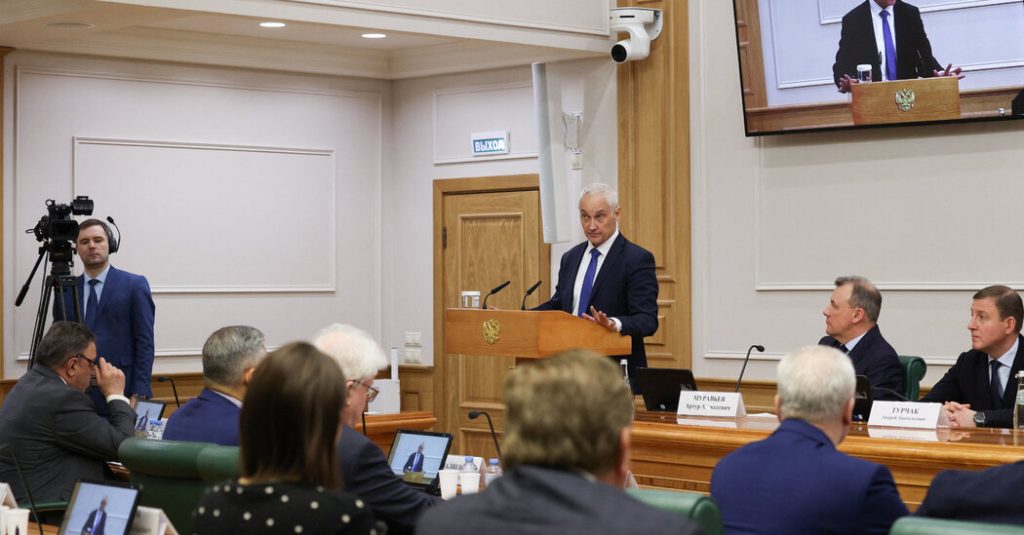President Vladimir V. Putin of Russia has appointed Andrei R. Belousov as the new defense minister in a move that reflects the country’s focus on a long war of attrition with Ukraine. Belousov, an economist, made his first public appearance in his new role and emphasized bureaucratic details related to managing military production. This signals a shift in strategy, with Russian forces in northeastern Ukraine pushing forward slowly rather than attempting major breakthroughs, as they did in the past. Belousov’s priorities include improving care and living standards for soldiers, veterans, and their families, addressing issues such as excessive paperwork and overcrowded hospitals.
Belousov’s appointment underscores Putin’s aim to subordinate Russia’s economy to its military needs, with a focus on sustaining a war of attrition with Ukraine or a militarized standoff with the West. Belousov, known for his support of a dominant state role in the economy and high public spending, is expected to enact policies that align with Putin’s goals. The war has led to the implementation of measures such as higher taxes on big businesses and increased use of the country’s oil savings. The move to appoint Belousov received support from various lawmakers and officials, who see him as the right person to procure new weaponry and innovations for the military.
Belousov’s nomination comes as a replacement for Sergei K. Shoigu, a longtime defense minister who was loyal to Putin but faced criticism following the initial invasion failure in February 2022. Despite the setbacks, Putin chose to replace Shoigu now, as Russia appears to be in a stronger position in the conflict. The appointment of Belousov to oversee the war effort mirrors a shift in the Russian strategy on the battlefield towards a slower-paced approach. Instead of attempting major breakthroughs, Russia is now focusing on systematic and gradual advancement against Ukrainian defenses, exploiting its manpower and firepower advantage.
The strategic shift towards a war of attrition is evident in Russia’s recent opening of a new front in the northern Ukrainian region of Kharkiv. This move follows failed attempts to capture the region earlier in the war and now involves small units of infantry supported by artillery slowly advancing one village at a time. While the goal of capturing the city of Kharkiv may be challenging, the attacks have succeeded in drawing Ukrainian reinforcements away from other areas of the front. This comes at a time when Ukraine is struggling to recruit fighters and obtain new weapons from Western allies, contributing to the overall strategy of attrition.
The appointment of Belousov as defense minister aligns with Putin’s focus on waging a long war with Ukraine and the West through a combination of military and economic measures. Belousov’s track record of supporting state intervention in the economy and high public spending makes him a key figure in implementing policies that prioritize military needs. The gradual approach on the battlefield and the recent offensive in Kharkiv reflect Russia’s strategic shift towards a war of attrition, leveraging its resources and manpower advantage. This new approach is likely to shape the ongoing conflict between Russia and Ukraine for the foreseeable future.







